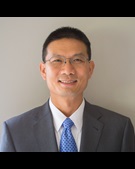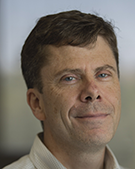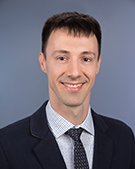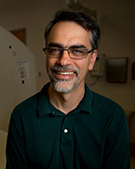RSNA 2023: AAPM Bios




Moderated by Guang-Hong Chen, PhD, with presentations from Simon R. Cherry, PhD, Lorenzo Nardo, MD, and Ramsey Badawi, PhD, this symposium will explore why technological innovators and clinicians must collaborate synergistically to realize a shared goal: Enhancing patient care. Presenters will showcase a successful collaboration that brought total-body PET imaging to clinical practice.
Dr. Chen is a professor of medical physics and radiology at the University of Wisconsin-Madison. He is recognized as one of the most innovative leaders in X-ray and CT imaging with more than 200 scientific publications and more than 40 issued patents. His research has been well funded by federal funding agencies and industrial partners in a broad spectrum of research topics including hardware imaging system development, reconstruction algorithm development, and translation of systems and algorithms into clinical practice to advance medical diagnosis and image-guided interventions. A well-loved teacher, he has mentored more than 30 PhD students. Dr. Chen has received numerous honors and awards including the Kellett Outstanding Faculty Award from the University of Wisconsin. He was elected Fellow of the AAPM and American Institute of Medical and Biomedical Engineering (AIMBE) and inducted into the Academic Council of Distinguished Investigators by the Academy for Radiology & Biomedical Imaging Research in 2021. Dr. Chen has served the medical imaging community as a leader at many professional organizations including AAPM, scientific program director for SPIE, and a member of the board of directors for the International Society for Computed Tomography. Dr. Chen served as chair of the Physics Subspecialty Committee helping lead the education and scientific programing on behalf of the AAPM and RSNA.
Dr. Cherry is a distinguished professor in the departments of biomedical engineering and radiology at the University of California (UC), Davis, and serves as a co-director of the EXPLORER Molecular Imaging Center. He maintains an active research lab in imaging technologies and his research has led to significant innovations including numerous inventions such as EXPLORER, the world’s first total-body PET scanner. Dr. Cherry earned a doctorate in medical physics, biophysics and radiobiology from the Joint Department of Physics at the Institute of Cancer Research and The Royal Marden Hospital in Sutton, England. His achievements have been recognized with the UC Davis Lifetime Achievement in Innovation Award, a World Molecular Imaging Society gold medal, and the Cassen Award from the Society of Nuclear Medicine and Molecular Imaging.
Dr. Nardo is an associate professor of radiology and division chief of nuclear medicine in the Department of Radiology, UC Davis, and serves as a co-director of the EXPLORER Molecular Imaging Center. His research centers on application of new imaging techniques and therapies in osteoarthritis and sport medicine, advanced imaging and developing new cancer therapies. He received his medical degree and doctorate from the Universitas Studiorum Brixiae in Brescia, Italy. Following a radiology residency at UC San Francisco, he completed fellowships in oncologic imaging at Memorial Sloan Ketting Cancer Center in New York and musculoskeletal imaging at UC Davis. Dr. Nardo has been recognized by the Society of Nuclear Medicine and Molecular Imaging as a 2020 Ones to Watch selection and his Radiology paper earned the Alexander Margulis Award for Scientific Excellence in 2019.
Dr. Badawi is vice chair for research in the Department of Radiology, molecular imaging administrative chair in radiology and professor of radiology and biomedical engineering at UC Davis. He is also a co-director of the EXPLORER Molecular Imaging Center. His research interests include the development and application of new types of nuclear medicine and molecular imaging scanners. He holds a bachelor’s degree in physics, a master’s degree in astronomy and a doctorate in biophysics, all from the University of Sussex in the United Kingdom. His work has been recognized with many awards, including the UC Davis Lifetime Innovation Award and the Distinguished Investigator Award from the Academy for Radiology and Biomedical Imaging Research. Dr. Badawi has been awarded more than $25 million in funding as principal investigator or multiple principal investigator from state, federal and private sources.